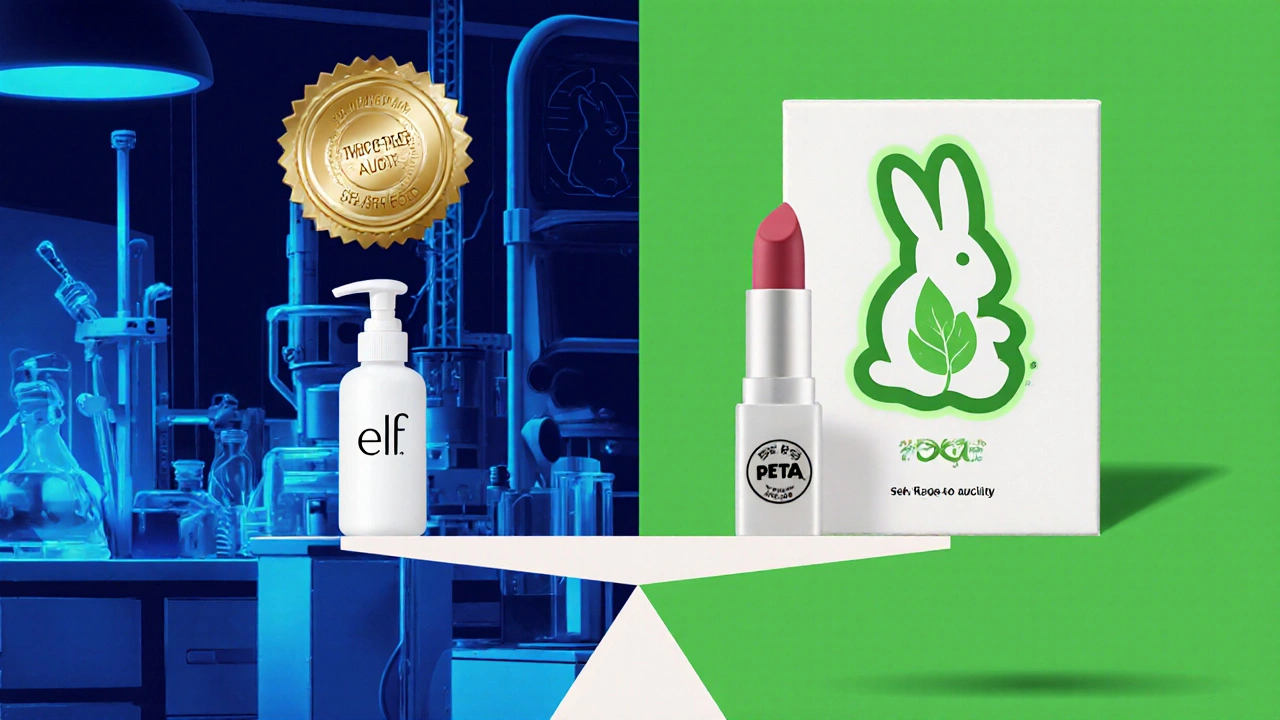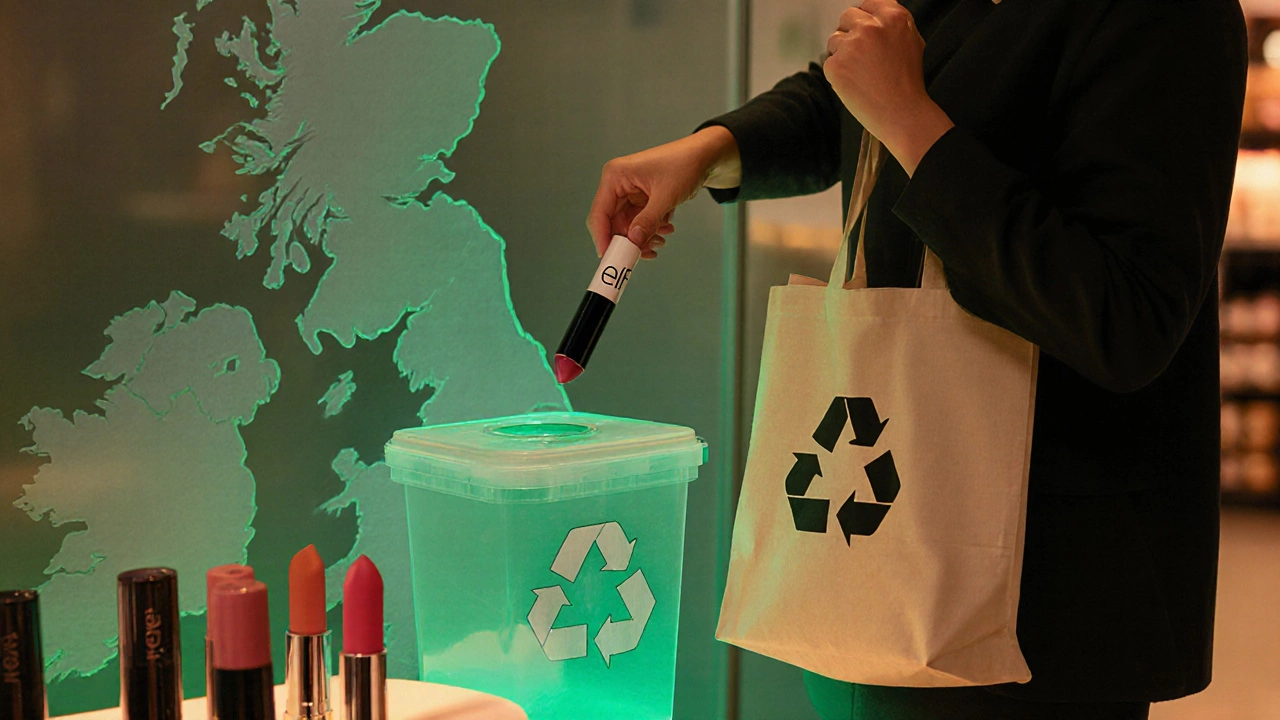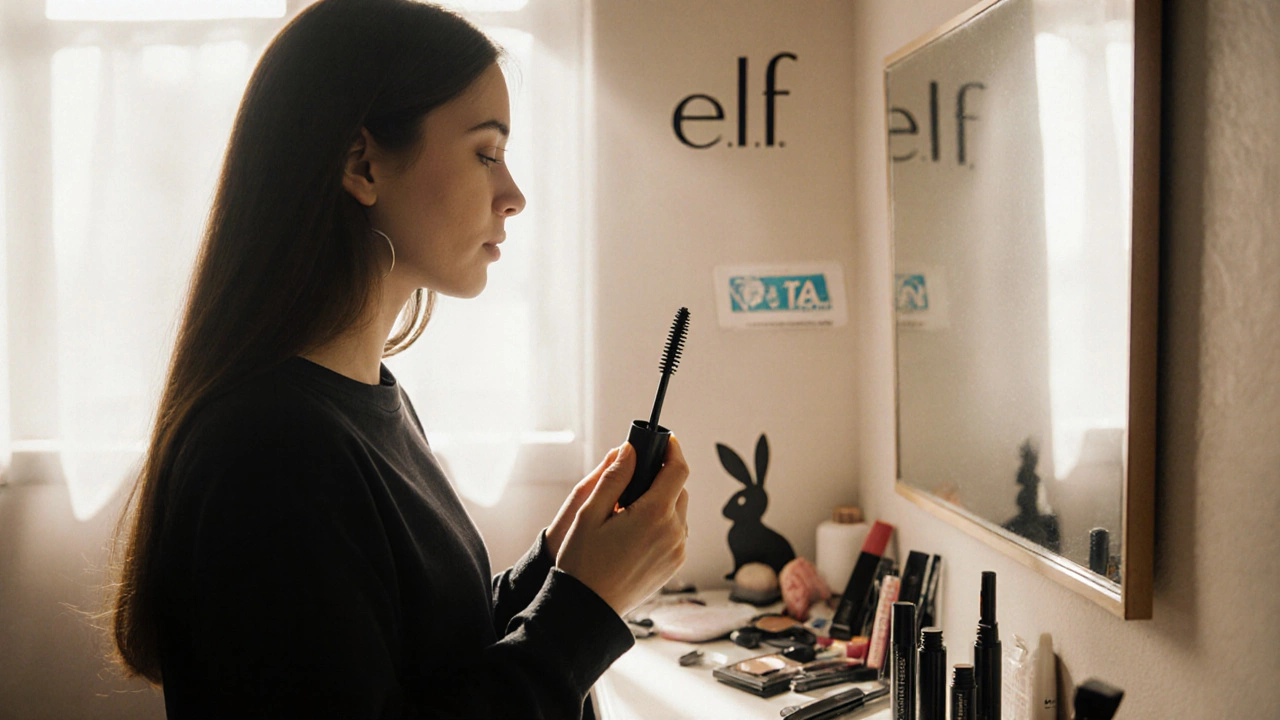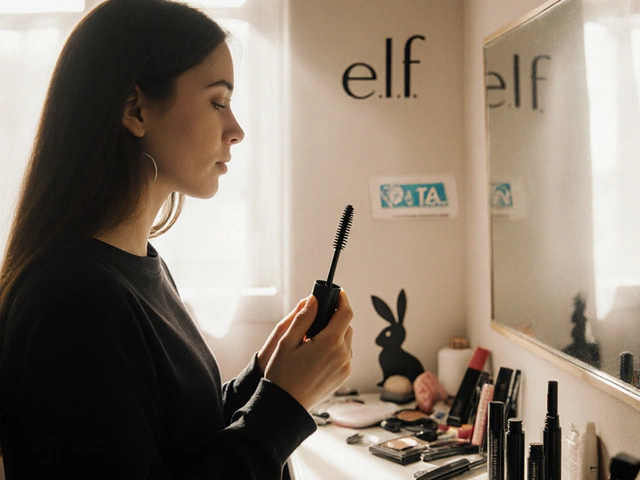When you pick up a new mascara or a bold lipstick, you probably glance at the price tag first. But for many shoppers, the next question is: Elf cosmetics ethics. Is the brand truly cruelty‑free? Does it care about the planet? And how open is it about where its ingredients come from? Let’s break down the facts, so you can decide if Elf fits your ethical standards.
What "ethical" actually means in makeup
Ethical beauty isn’t a single checklist; it’s a mix of three big ideas:
- Cruelty‑free - no animal testing at any stage.
- Vegan or ingredient‑friendly - avoiding animal‑derived components.
- Sustainable practices - recyclable packaging, low carbon footprint, and transparent sourcing.
Brands can hit one of these points and still fall short on the others, so a full picture matters.
Elf Cosmetics at a glance
Elf Cosmetics is a drugstore makeup brand owned by e.l.f. Beauty, Inc., known for its budget‑friendly products and bold marketing. The company launched in 2004 and quickly grew to a global presence, selling over 200 shades of eye shadow and a full line of skin‑care items.
Because of its low price point, Elf reaches a massive audience-including college students, makeup artists, and everyday shoppers who want decent performance without splurging.
Certification landscape: How Elf proves (or fails to prove) cruelty‑free status
In the beauty world, the two most trusted cruelty‑free seals are Leaping Bunny and PETA. Both require brands to certify that they never test on animals and that their suppliers don’t either.
Elf’s current stance:
- Elf states on its website that it is “cruelty‑free” and does not test any product or ingredient on animals.
- The brand is listed on PETA’s Beauty Without Bunnies database, which means it meets PETA’s criteria.
- Elf does not carry the official Leaping Bunny logo, a detail that some shoppers view as a red flag because Leaping Bunny requires third‑party audits.
Why the difference matters: PETA’s certification is self‑reported and relies on companies providing documentation, while Leaping Bunny demands a more rigorous, independent audit. That extra layer can give extra confidence to the most skeptical consumers.
| Certification | Core Criteria | Year Launched | Verification Method |
|---|---|---|---|
| Leaping Bunny | No animal testing anywhere in the supply chain | 2005 | Third‑party audit by Humane Society International |
| PETA Beauty Without Bunnies | Company affirms no animal testing; suppliers must comply | 2004 | Self‑reported documentation reviewed by PETA |
| EU Cosmetics Regulation (EU No 1223/2009) | Ban on animal testing for finished products sold in the EU | 2013 (full ban) | Regulatory compliance checked by national authorities |
Animal testing policy: The fine print
Elf’s public statement reads: “We do not test on animals, nor do we allow any of our suppliers to do so.” However, there’s a nuance in the fine print that’s worth noting:
- Elf sells its products in the United States, where the FDA does not ban animal testing for cosmetics.
- If a regulatory agency (e.g., the U.S. FDA) requests safety data that includes animal testing, Elf must provide it to stay on the market.
- Elf’s European‑market products automatically fall under the EU ban, so those lines are strictly cruelty‑free.
In practice, Elf has never been cited for violating animal‑testing laws, but the conditional clause means the brand’s cruelty‑free claim hinges on the regulatory landscape.

Vegan ingredients and product transparency
Another piece of the ethical puzzle is whether a brand’s formulas contain animal‑derived ingredients. Elf’s website labels many items as “vegan,” but only a subset of the full catalog carries the official vegan seal.
Key points:
- Elf’s vegan line includes popular items like the "Pore‑Perfecting Liquid Primer" and the "Glamorous Lights" highlighter.
- For non‑vegan items, the ingredient list often includes beeswax, carmine, or lanolin. The brand does provide an ingredient glossary, but it’s buried under a “click‑to‑view” toggle that some users overlook.
- Elf’s ingredient sourcing is not fully disclosed; the company mentions "US‑based suppliers" but does not name specific farms or factories.
Bottom line: If you’re strictly vegan, you’ll need to check each product’s label or the online database before buying.
Sustainability efforts: Packaging, carbon footprint, and recycling
Eco‑friendly packaging has become a major factor in brand reputation. Elf touts several initiatives:
- Sustainable packaging: The brand claims that 40% of its containers use recycled plastic, and newer releases feature “airless” pumps that reduce plastic waste.
- Elf’s “Recyclable Beauty” program encourages customers to drop empty containers at participating retailers, though the program is only available in North America and Europe.
- Carbon‑offset partnerships: Elf reports a 2023 carbon‑neutral shipping pledge for orders placed in the U.S., but the data comes from a third‑party sustainability report without independent verification.
While the steps are commendable, the lack of a full life‑cycle assessment means the brand’s overall carbon footprint remains largely opaque.
Supply chain transparency and ethical sourcing
Real ethical accountability often hides in the supply chain. Elf’s public documents mention compliance with EU Cosmetics Regulation and a Supplier Code of Conduct that bans child labor and requires safe working conditions.
However, the brand does not publish a full list of suppliers, nor does it disclose audit results. Some third‑party watchdogs have raised concerns about the sourcing of mica-a mineral frequently mined under unsafe conditions in India. Elf says it works with “responsibly sourced” mica providers, but the claim lacks a verifiable traceability report.

Consumer sentiment: What shoppers say
Social media buzz can be a quick gauge of brand perception. A quick scan of Instagram hashtags #elfcosmetics and #elfbeauty reveals:
- High praise for product performance and price.
- Recurring questions about cruelty‑free status, especially from users in the U.K. and Canada where Leaping Bunny is a common benchmark.
- Occasional criticism about the lack of full vegan labeling and the hidden “click‑to‑reveal” ingredient information.
Overall, the majority of reviewers are satisfied, but a vocal minority remains skeptical about the depth of Elf’s ethical commitments.
Quick ethical checklist for Elf shoppers
- Check the product page for the PETA badge. If it’s missing, assume the item isn’t officially cruelty‑free.
- Look for the “Vegan” label if you avoid animal‑derived ingredients.
- Prefer items made from recycled plastic or marked with the “Sustainable Packaging” icon.
- Verify that the purchase is for a region covered by the EU ban on animal testing for extra peace of mind.
- Consider buying from retailers that accept Elf’s empty containers for recycling.
Following this list helps you align your beauty routine with your values, without having to become a full‑time investigator.
Bottom line
Elf Cosmetics scores well on price and product variety, and it meets basic cruelty‑free criteria according to PETA. The brand falls short of the highest third‑party audit standards (Leaping Bunny), offers a mixed vegan range, and provides limited transparency around supply‑chain sourcing and carbon impact. If you’re looking for a budget‑friendly brand that’s generally cruelty‑free, Elf is a solid choice-just double‑check each item’s label if you need strict vegan assurance.
Is Elf Cosmetics certified cruelty‑free?
Elf is listed on PETA’s Beauty Without Bunnies database, which means the company affirms no animal testing. However, it does not carry the Leaping Bunny seal, which requires a third‑party audit.
Can I buy 100% vegan products from Elf?
Only a portion of Elf’s catalog is labeled vegan. You’ll need to check individual product pages for the vegan badge before purchasing.
Does Elf use sustainable packaging?
Elf reports that around 40% of its packaging contains recycled plastic and has launched a recycling‑in‑store program in North America and Europe.
Is Elf’s product line tested on animals in the United States?
U.S. regulations allow animal testing if required by the FDA. Elf says it does not conduct such testing, but the policy includes a clause that it would comply if legally demanded.
How can I recycle Elf product containers?
Elf partners with select retailers for a drop‑off recycling program. Check the brand’s website for participating locations near you.

